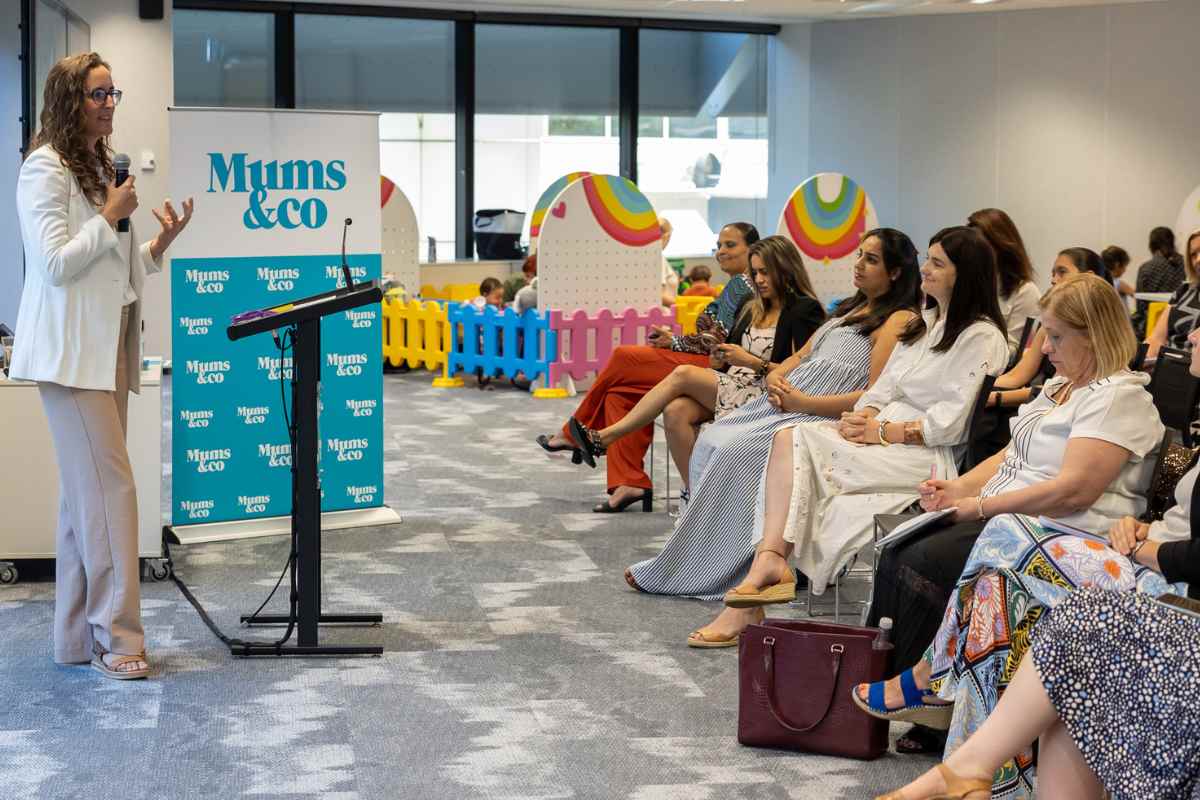How to Become a Content Creator
A content creator produces engaging material for digital platforms like TikTok, Instagram, and YouTube. Mums find it appealing due to flexibility and work-from-home opportunities. Communities like Mums & Co offer valuable support and networking.
A content creator is an individual who produces entertaining or educational material to be expressed through any medium or channel, such as social media platforms like TikTok, Instagram, and YouTube. The creator economy has experienced significant growth, with the number of content creators increasing by over 48% annually between 2019 and 2022. The growing popularity of platforms like TikTok and the increased demand for digital content drive this surge. Mums are increasingly choosing to become content creators as it offers flexibility and the ability to work from home.
To become a successful content creator, follow these steps:
- Select your target audience
- Choose the right platform
- Craft a content strategy
- Develop a unique voice and style
- Invest in quality tools and resources
- Dedicate time daily to practice and refine your skills
- Offer value to your audience
- Analyse audience feedback
- Employ effective marketing techniques
- Engage in networking opportunities
- Learn from successes and failures
- Maintain a regular posting schedule
- Adapt to trends and feedback
Statistics show that over 50 million people worldwide consider themselves content creators. The main benefits of becoming a content creator include the ability to express creativity, build a personal brand, connect with an audience, and earn income. However, there are also disadvantages, such as inconsistent income, high competition, and the pressure to constantly produce new content.
In Australia, content creators commonly choose to operate as sole traders for tax purposes. It's important for content creators to understand marketing strategies to grow their audience, such as collaborating with other creators, using hashtags, and engaging with followers. Having mentors and being involved in communities like Mums & Co can provide valuable support.
What is Content Creator?
A content creator is someone who produces entertaining or educational material for digital and online platforms. The term "content creator" emerged in the early 2000s with the rise of social media and online video platforms. Content creators produce various types of content, including blog posts, videos, photos, and social media posts to engage their audience.
https://www.youtube.com/watch?v=jqNwizIC00A
What does Content creation mean?
Content creation refers to the process of generating topic ideas that appeal to your buyer persona, creating written or visual content around those ideas, and making that information accessible to your audience. A content creator is the person responsible for the ideation, creation, and distribution of this content.
Is It hard to become a Content Creator?
Becoming a content creator requires hard work, dedication, and patience. While it may seem easy to post content online, consistently creating quality content that engages an audience can be challenging. It takes time to build a following and establish yourself in the industry.
What are the skills required to become a Content Creator?
To become a successful content creator, you should have:
- Creativity and originality
- Writing and communication skills
- Basic photo and video editing abilities
- Knowledge of social media platforms
- Time management and organisational skills
- Adaptability
- Interpersonal and networking skills
Is becoming a content creator suitable for mums?
Yes, becoming a content creator can be a great option for mums as it offers flexibility and the ability to work from home. Many successful mum content creators balance their work with family responsibilities. However, it's important to note that being a content creator still requires significant time and effort to produce quality content consistently.
What are the future provisions of the Content Creator industry?
A report by Grand View Research that the global content creation market will reach $142.3 billion by 2024, driven by advancements in digital platforms and the growing demand for diverse and engaging content. This growth indicates the rising influence of content creators across various social media platforms and the expanding opportunities within the creator economy. Experts predict that content creators will play an increasingly important role in digital marketing and e-commerce.
What are the most common types of content creators?
There are several types of content creators, including:
- Bloggers: Create written content on various topics
- YouTubers: Produce video content on YouTube
- Podcasters: Create audio content
- Social Media Influencers: Create content for social platforms like Instagram, TikTok
- Streamers: Livestream content, often related to gaming
- Course Creators: Produce educational content and online courses
8 Steps to become a successful content creator
Becoming a successful content creator involves following these key steps:
- Define your niche: Choose a specific topic or area to focus your content around.
- Understand your audience: Get to know your target audience and what type of content they enjoy.
- Choose your platform: Select the platform that aligns best with your content and audience.
- Develop a content strategy: Plan out your content mix and posting schedule.
- Invest in equipment and software: Use quality tools to create professional-grade content.
- Be authentic and consistent: Develop your unique style and post content regularly.
- Engage with your audience: Respond to comments and messages to build loyalty.
- Collaborate and promote: Work with other creators and use marketing tactics to grow your audience.
How to become a content creator for Social Media
Creating content for social media platforms is one of the most common forms of content creation. Here are tips for becoming a content creator on popular platforms:
How to become a content creator for Instagram
- Find your niche
- Optimise your profile
- Post eye-catching content
- Write engaging captions
- Use relevant hashtags
- Tag relevant accounts
- Interact with others
- Post consistently
- Utilise Instagram features like Stories and Reels
How to become a content creator for TikTok
- Identify your target audience
- Use trending sounds and hashtags
- Create original content
- Use eye-catching visuals and text
- Jump on viral challenges and trends
- Post regularly
- Engage with other creators and users
How to become a content creator on YouTube
- Choose your channel topic and name
- Optimise your channel page
- Create engaging video content
- Use keywords in titles/descriptions
- Design appealing thumbnails
- Promote on other platforms
- Engage with your community
- Collaborate with other YouTubers
What are the Requirements to Become a Content Creator?
The main requirements to become a content creator are:
- A creative mindset
- Knowledge of your chosen content area
- Content creation skills (writing, photography, video editing, etc)
- Understanding of the content platform(s) you'll use
- Consistency and work ethic
In Australia, content creators should also be aware of laws around copyright, intellectual property, and advertising disclosures. Most content creators operate as sole traders, which involves registering for an ABN and paying taxes on income earned.
What are the main Challenges of being a Content Creator?
Some of the biggest challenges content creators face include:
- Constantly coming up with new content ideas
- Promoting content and growing an audience
- Dealing with online criticism and negativity
- Maintaining work/life balance
- Inconsistent income and job security
Additional challenges for mums may include finding time to create while balancing family duties and overcoming "mum guilt" about dedicating time to content creation.
What is the difference between Content Creator and Social media manager?
The main difference is that a content creator produces the content (videos, graphics, text posts) while a social media manager is responsible for managing social media accounts, developing social strategies, analysing metrics, and handling engagement and messages. Some content creators handle their own social media management, but many work with a dedicated manager.
What is the Best Business Structure for a Content Creator?
In Australia, most content creators operate as sole traders. This is the simplest business structure that gives content creators full control, but doesn't offer liability protection. Other options are becoming a company or operating through a trust, but these have higher setup and accounting costs.
How much tax does a Content Creator pay in Australia?
Sole trader content creators pay individual income tax rates on their business earnings. The amount depends on total income for the year. For example, if a content creator has a taxable income of $75,000, they would pay $15,922 in tax based on 2023 rates. Content creators can claim business expenses as tax deductions.
What are the Strategies to become successful as a Content Creator?
Key strategies for content creators to achieve success include:
- Posting content consistently and frequently
- Promoting content through multiple channels
- Engaging with audience through comments/messages
- Optimising content for the platform's algorithm
- Analysing performance metrics and adapting strategy
- Collaborating with other creators and brands
- Diversifying income through multiple revenue streams
Is Networking Important for a Content Creator?
Yes, networking is very important for content creators. Connecting with other creators can lead to collaborations that expose you to new audiences. Networking with brands can secure sponsorships and paid partnerships. Attending industry events and joining communities like Mums & Co can provide valuable learning and partnership opportunities.
What are the Investment Costs to start as a Contentas Content Creator?
The startup costs for content creators depend on the type of content and level of quality but may include:
- Camera and lighting equipment
- Microphone and audio gear
- Computer or laptop
- Editing software
- Web hosting for a blog/website
- Props and backdrops
Many content creators start with basic gear and upgrade over time as their audience and income grow. There are free or low-cost versions of most software tools.
What are the Main Benefits of becoming a Content Creator?
The main advantages of being a content creator are:
- Flexibility to work when and where you want
- Ability to pursue your creative passions
- Opportunity to build a personal brand
- Potential to earn income doing something you enjoy
- Sense of fulfillment from positively impacting an audience
- Opportunity to collaborate with inspiring people/brands
What are the disadvantages of becoming a Content Creator?
Some of the drawbacks of content creation include:
- Pressure to constantly come up with new ideas
- Lack of consistent income and job security
- Risk of burnout from always being "on."
- Dealing with online trolls and negative feedback
- Blurred boundaries between work and personal life
- Constantly changing platform algorithms and trends
Who can help start a successful career as a content creator?
Having mentors and being part of a community greatly benefits new content creators. Mentors who have found success in content creation can provide guidance, advice, and insider tips. Joining online or in-person communities for content creators provides opportunities to learn, find collaboration partners, and get support from people who understand the unique challenges of the career.
Studies have shown that small businesses with mentors are more likely to succeed long-term. For mum content creators in Australia, a community like Mums & Co can be incredibly valuable for support, inspiration, and connection with other mumpreneurs.
-1.png)

.png)

.png)






